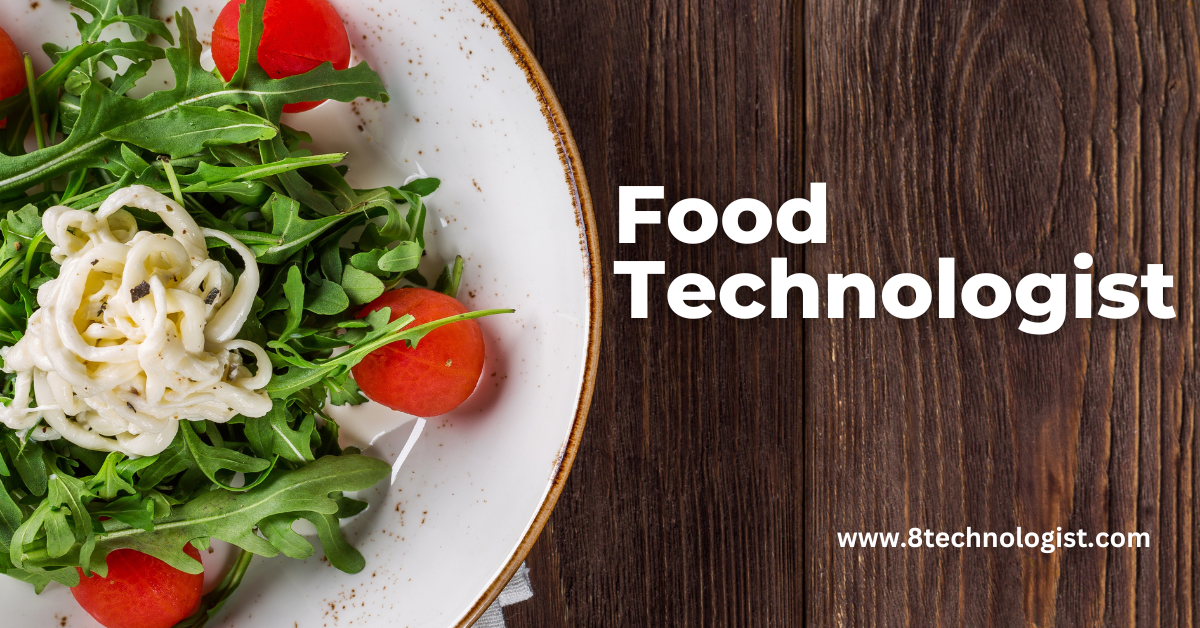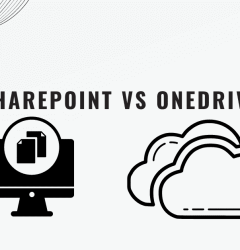31 Dec

Introduction
A food technologist is a professional who applies scientific principles to the production, processing, and preservation of food. Trained in food science, chemistry, and technology, food technologists play a crucial role in ensuring the safety, quality, and nutritional value of food products.
They work across various industries, including food manufacturing, research and development, and quality control. Food technologists may be involved in developing new food products, improving existing formulations, conducting quality tests, and implementing food safety standards.
Their expertise extends to understanding the chemical, physical, and microbiological aspects of food, allowing them to innovate and contribute to the continuous improvement of the food industry.
Food technologists bridge the gap between scientific knowledge and practical applications, playing a key role in shaping the diverse and ever-evolving world of food production and technology.
Food technologists are the unsung heroes of the culinary world, playing a critical role in every aspect of food – from farm to fork. Their expertise is pivotal in ensuring the food we consume is safe, nutritious, and sustainable, yet their work often goes unnoticed by the everyday consumer.
This comprehensive exploration will delve into the multifaceted world of food technologists, highlighting their contributions to modern society and the future of food.
1: The Essence of a Food Technologist
At its core, the role of a food technologist involves applying scientific principles to the study, development, and manufacturing of food. They are involved in a range of processes including product development, quality control, and ensuring regulatory compliance. This profession is a unique blend of science and creativity, requiring a passion for food and a strong foundation in scientific disciplines.
2: Educational Pathways
A career as a food technologist typically begins with a bachelor’s degree in food science, technology, or a related field. These academic programs provide a comprehensive understanding of subjects like food chemistry, microbiology, nutrition, and food engineering. Advanced degrees and specializations can further enhance a food technologist’s knowledge and open doors to more research-intensive roles.
3: A Day in the Life
The daily life of a food technologist is diverse and challenging. It might involve experimenting in a lab to create a new flavor, testing food samples for safety and quality, or overseeing production processes in a manufacturing plant. The role requires a keen eye for detail, problem-solving skills, and the ability to adapt to the fast-paced and ever-changing food industry.
4: Innovations in Food Technology
Innovation is at the heart of food technology. Food technologists work tirelessly to develop new food products, enhance the nutritional value of existing ones, and create sustainable and efficient production methods. This could involve anything from formulating plant-based meat alternatives to developing extended shelf-life packaging solutions.
5: Ensuring Food Safety and Quality
A paramount aspect of a food technologist’s job is ensuring the safety and quality of food products. This includes setting standards, conducting tests for contaminants and allergens, and developing processes to maintain food integrity from production to consumption. They also play a vital role in implementing and monitoring food safety management systems.
6: The Sustainability Challenge
With the global emphasis on sustainability, food technologists are increasingly focused on developing eco-friendly and efficient food production methods. This includes efforts to reduce food waste, improve resource efficiency, and create sustainable packaging. The field is also exploring the use of alternative food sources, such as insects and algae, to meet the world’s growing food needs.
7: Food Technology and Health
One of the most significant contributions of food technologists is in the area of health and nutrition. They are at the forefront of developing food products that cater to various health needs, such as gluten-free, low-sodium, or high-protein options. Their work directly impacts public health, offering healthier choices to consumers.
8: Technology in Food Science
The integration of technology in food science has opened new horizons for food technologists. From artificial intelligence in food processing to blockchain for food traceability, technology is revolutionizing how we produce and consume food. Food technologists are thus not only scientists but also innovators and technologists.
9: Regulatory Compliance and Ethics
Food technologists play a crucial role in ensuring regulatory compliance. They must stay updated with food laws and regulations and ensure that products meet all legal standards. Additionally, they often grapple with ethical considerations, such as animal welfare in food testing and the use of genetically modified organisms (GMOs).
10: The Global Food System
Food technologists are key players in the global food system. They work on challenges like food security, addressing malnutrition, and developing food systems that can withstand the impacts of climate change. Their expertise is vital in ensuring a stable and sustainable global food supply.
11: Career Prospects and Opportunities
The field of food technology offers a wide range of career opportunities. From research and development to quality assurance and food safety, the possibilities are vast. The growing focus on health, sustainability, and innovation in the food industry means that the demand for skilled food technologists is on the rise.
12: The Future of Food Technology
Looking towards the future, food technologists will continue to play a pivotal role in shaping the way we eat. With challenges like a growing global population and environmental concerns, their expertise will be crucial in developing sustainable and nutritious food solutions.
Conclusion
The role of a food technologist is integral to our daily lives, impacting the food we eat in numerous ways. From ensuring the safety and quality of food to driving innovation and sustainability in the food industry, their contributions are invaluable. As we look to the future, the work of food technologists will be more important than ever in navigating the challenges of a changing world and ensuring a healthy, sustainable food supply for generations to come.
Frequently Asked Questions (FAQ)
Q. What is the role of a food technologist?
A. A food technologist is a professional who applies scientific and engineering principles to develop, improve, and analyze food products, ensuring quality, safety, and compliance with regulations.
Q. What Does a Food Technologist Do?
A. Food technologists are responsible for developing safe and nutritious food products. They work on various aspects of food production, including research and development, quality control, food safety, and ensuring compliance with health and dietary regulations.
Q. What Qualifications are Required to Become a Food Technologist?
A. Typically, a bachelor’s degree in food science, nutrition, chemistry, or a related field is required. Advanced roles may necessitate a master’s or doctoral degree. Key skills include a strong understanding of scientific principles, attention to detail, and the ability to work in a team environment.
Q. What is the Difference Between a Food Scientist and a Food Technologist?
A. The roles overlap significantly, but typically, food scientists focus more on studying the biological and chemical makeup of foods, while food technologists often apply this scientific knowledge to develop and improve food products and processes.
Q. What are the Typical Work Environments for Food Technologists?
A. Food technologists work in a variety of settings, including laboratories, manufacturing plants, and corporate offices. They may be employed by food production companies, research institutions, or governmental regulatory agencies.
Q. What is the Average Salary of a Food Technologist?
A. Salaries vary based on location, experience, and the specific sector within the food industry. Generally, food technologists can expect a competitive salary that aligns with other scientific and technical professions.
Q. What are the Career Advancement Opportunities for a Food Technologist?
A. Career advancement can include moving into senior technical roles, management positions, or specializing in areas like product development, food safety, or regulatory affairs. Continued education and gaining industry-specific certifications can also enhance career prospects.
Q. How Do Food Technologists Contribute to Food Safety?
A. Food technologists play a crucial role in ensuring food safety by developing and implementing safety protocols, testing for contaminants, and ensuring compliance with food safety regulations and standards.
Q. What are the Challenges Faced by Food Technologists?
A. Challenges include keeping up with rapidly changing food regulations, adapting to emerging food technologies, meeting consumer demands for healthier and more sustainable foods, and ensuring food safety in a complex global supply chain.
Q. How Do Food Technologists Stay Current in Their Field?
A. Food technologists stay current by attending industry conferences, participating in continuing education courses, reading scientific journals, and being active members of professional organizations related to food science and technology.
Q. Can Food Technologists Work in Areas of Special Dietary Needs?
A. Yes, many food technologists specialize in developing food products for special dietary needs such as gluten-free, allergen-free, vegan, or nutritionally enhanced foods, addressing the growing market for specialized dietary requirements.
Q. How does a food technologist contribute to food product development?
A. Food technologists play a crucial role in formulating recipes, conducting product trials, and optimizing processes to create new and improved food products that meet consumer preferences and industry standards.
Q. What skills are essential for a successful career as a food technologist?
A. Key skills include a strong understanding of food science, analytical skills, attention to detail, problem-solving abilities, knowledge of regulations, and effective communication for collaboration with teams and stakeholders.
Q. Is certification necessary for food technologists?
A. While certification is not always mandatory, obtaining certifications from professional organizations, such as the Institute of Food Technologists (IFT), can enhance credibility and demonstrate a commitment to professional development.
Q. What industries do food technologists work in?
A. Food technologists work across various industries, including food and beverage manufacturing, research and development, quality control, and regulatory affairs. They may also contribute to areas like academia and consultancy.
Q. How does a food technologist ensure food safety and quality?
A. Food technologists implement rigorous testing protocols, monitor production processes, and adhere to safety regulations. They conduct risk assessments, develop quality control measures, and contribute to maintaining high industry standards.
Q. What is the future outlook for careers in food technology?
A. The demand for food technologists is expected to grow due to increased focus on food safety, innovation in product development, and the expanding food industry. Opportunities exist globally in various sectors of the food supply chain.
Q. Can a food technologist specialize in a particular type of food?
A. Yes, food technologists can specialize in specific types of food, such as dairy, bakery, beverages, or snacks. Specialization allows them to develop expertise in the unique challenges and requirements of particular food categories.
Q. How does technology impact the work of food technologists?
A. Technology plays a significant role in food technology, aiding in research, product development, quality control, and production processes. Food technologists leverage advanced tools and techniques to stay at the forefront of industry innovation.




















Find Us On